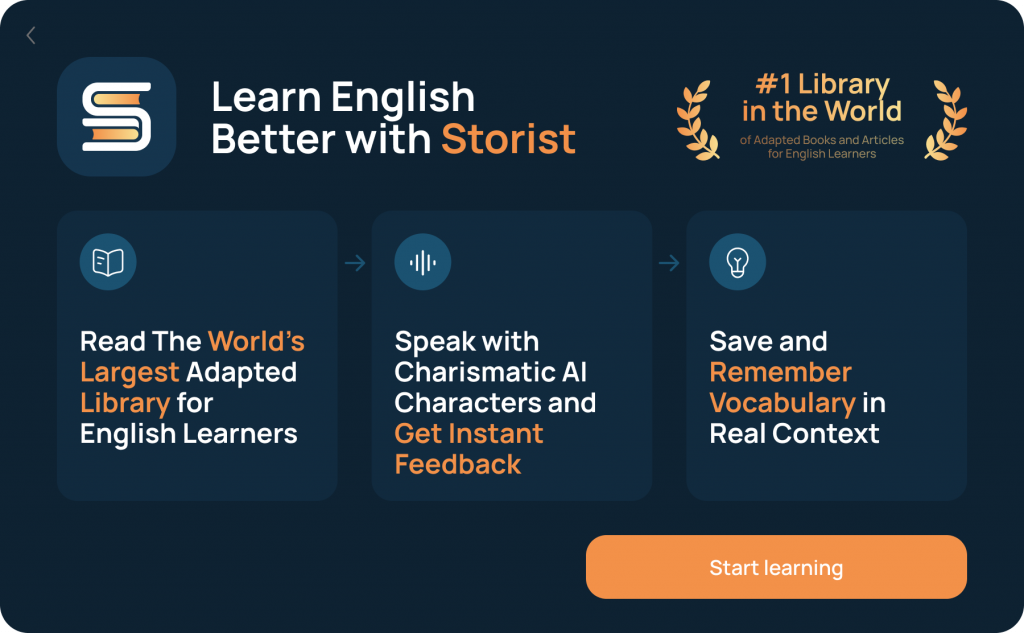Build English Vocabulary Skills with LingQ in Japan
Build strong English vocabulary skills through LingQ’s proven methods in Japan. Interactive lessons, native audio, and personalized learning paths.
Essential English Vocabulary Foundation for Japanese Learners
Establishing a solid vocabulary base is crucial for Japanese learners aiming to communicate effectively in English. Our platform starts with approximately 2,000 frequently used English words, focusing on practical categories necessary for everyday interaction. We link new vocabulary to familiar Japanese concepts, easing the transition between language structures. Students typically reach mastery of these foundational words within six weeks through consistent study and review. This phase emphasizes core vocabulary such as greetings, numbers, and everyday nouns, which form the groundwork for further language development.
Core Word Categories and Learning Sequence
Vocabulary is introduced in carefully arranged levels, allowing learners to build on prior knowledge progressively. Starting with concrete, tangible nouns, students then move to verbs and adjectives before tackling abstract terms. This step-by-step process avoids overload and reinforces retention. Native speaker audio accompanies each word to promote accurate pronunciation. Repetition and voice comparison exercises ensure learners internalize new sounds.
- Daily objects and household items (200 words)
- Basic verbs for common actions (150 words)
- Descriptive adjectives for people and places (100 words)
- Time expressions and frequency adverbs (80 words)
- Social interaction phrases and responses (120 words)
Our platform tracks learner progress with clear milestones and adjusts content difficulty accordingly. As students advance, they encounter more complex vocabulary and sentence structures. This foundation supports further development of English vocabulary tailored to Japanese learners’ needs.
| Learning Phase | Word Count | Duration | Focus Areas |
|---|---|---|---|
| Foundation | 500 words | 6 weeks | Basic nouns, verbs, adjectives |
| Intermediate | 1,000 words | 10 weeks | Complex sentences, phrasal verbs |
| Advanced | 2,000 words | 16 weeks | Academic terms, idioms, specialized vocabulary |
Interactive Learning Methods for Vocabulary Retention
LingQ employs scientifically backed techniques to maximize vocabulary retention. One key method is the spaced repetition system, which schedules word reviews at optimal intervals to enhance memory consolidation. Our lessons integrate visual, auditory, and kinesthetic elements, catering to diverse learning preferences. This multi-modal approach reinforces neural pathways and supports deeper retention. Students engage with typing exercises, listening activities, and pronunciation drills within each lesson.
Spaced Repetition System Implementation
The repetition algorithm personalizes review frequency based on individual word difficulty. Challenging vocabulary appears more often, while mastered words are reviewed less frequently to maintain retention without redundancy. Each 30-minute session typically includes 50–80 vocabulary items presented in varied contexts to avoid rote memorization. Exercises combine pronunciation practice, meaning matching, and sentence completion.
Contextual Learning Through Authentic Content
To strengthen vocabulary understanding, learners engage with real-life English materials. Our extensive library includes articles, podcasts, and stories from native English sources. Content ranges from beginner-friendly news to advanced academic texts. Unknown words are highlighted and linked to instant definitions, allowing seamless reading and vocabulary acquisition. This method encourages natural vocabulary growth aligned with comprehension improvement.
- Visual aids paired with native audio
- Typing and repetition exercises
- Contextual vocabulary exposure
Pronunciation Mastery for Japanese English Learners
Accurate pronunciation is vital for vocabulary acquisition and communication in English. Japanese learners face particular difficulties with sounds not present in their native phonology, such as /r/ versus /l/ and the /th/ sounds. LingQ offers detailed guides featuring audio models and visual mouth position diagrams to address these issues. Repetitive practice with speech recognition technology provides immediate feedback on pronunciation accuracy. Students can record their voices and compare them with native speakers to improve fluency.
Sound Recognition and Production Techniques
Training begins with isolated phonemes, advancing to minimal pair exercises to enhance auditory discrimination. Production drills include tongue twisters, rhythm exercises, and stress placement practices. These targeted activities focus on common challenges for Japanese learners. The platform’s feedback system recommends corrective strategies for persistent pronunciation errors, enabling continuous improvement.
Mobile Application Features for Flexible Learning
LingQ’s mobile app supports vocabulary practice anytime, especially suited for busy Japanese commuters. The app’s offline mode allows study without internet access, syncing progress once connectivity is restored. Features include voice recording for pronunciation, gesture navigation, and push notifications reminding learners of daily goals. Gamification elements such as badges and streaks help maintain motivation. The app is fully compatible with iOS and Android devices and offers Japanese language interface and customer support.
Offline Learning Capabilities
Offline functionality enables access to up to 500 lessons complete with audio pronunciation files. Users track progress locally and sync data automatically when online. Voice recordings are stored on the device and uploaded to cloud storage when connected. Flashcard reviews use spaced repetition algorithms to optimize retention. Battery-friendly design ensures longer study sessions on mobile devices.
- Download complete lessons with audio
- Track performance offline
- Record pronunciation and upload later
- Receive achievement notifications
| Feature | Online Mode | Offline Mode | Sync Required |
|---|---|---|---|
| Vocabulary lessons | Full access | 500 lessons max | Auto-sync |
| Audio pronunciation | Streaming | Downloaded files | No |
| Progress tracking | Real-time | Local storage | Manual sync |
| Voice recording | Cloud storage | Local files | Auto-upload |
Personalized Learning Paths and Progress Tracking
Our adaptive system assesses each student’s current vocabulary knowledge and learning goals to create custom study plans. Business learners receive vocabulary tailored to workplace communication, while academic students focus on examination preparation. Detailed analytics track daily vocabulary acquisition, retention rates, and pronunciation scores. Weekly progress reports highlight areas of strength and those needing improvement. The platform adjusts difficulty dynamically, ensuring learners remain challenged but not overwhelmed.
Goal Setting and Achievement Monitoring
Setting precise, measurable goals supports consistent study habits. Learners define weekly targets for vocabulary, pronunciation, and reading comprehension. The platform monitors progress and provides feedback to encourage steady advancement. Certificates recognize completion of vocabulary levels, pronunciation milestones, and sustained study streaks, reinforcing motivation through tangible achievements.
Integration with Japanese Educational Systems
LingQ aligns with Japan’s educational standards, offering supplementary material for university and high school students. Our platform supports vocabulary development beyond classroom expectations, aiding preparation for international English exams. Corporate clients benefit from specialized business English modules integrated into employee training. Group licensing options accommodate educational institutions, allowing teachers to assign vocabulary sets and monitor student progress through management tools. Compatibility with existing learning management systems simplifies adoption.
Examination Preparation Support
Dedicated vocabulary modules target TOEIC, TOEFL, IELTS, and Cambridge exam requirements. These include essential business terms, academic vocabulary, and test-specific phraseology. Practice tests simulate real exam conditions with timed sections and scoring. Students identify vocabulary weaknesses and focus study efficiently. Regular assessments prevent knowledge loss and build confidence for official tests.
| Exam Type | Vocabulary Focus | Study Duration | Success Rate |
|---|---|---|---|
| TOEIC | Business terms | 12 weeks | 85% improvement |
| TOEFL | Academic vocabulary | 16 weeks | 78% target achievement |
| IELTS | General proficiency | 14 weeks | 82% band improvement |
| Cambridge | Advanced expressions | 20 weeks | 76% certification rate |
Community Features and Peer Learning
LingQ connects Japanese learners with global peers for interactive language practice. Language exchange pairs students with native English speakers interested in Japanese, fostering reciprocal learning. Discussion forums organized by proficiency and topics encourage exchange of vocabulary strategies and cultural insights. Moderated virtual study groups facilitate vocabulary and pronunciation practice. Experienced learners mentor beginners, reinforcing skills through teaching.
Native Speaker Interaction Opportunities
Scheduled sessions with qualified English teachers provide targeted vocabulary coaching. Students apply new words in natural conversations and receive immediate correction. Group classes focus on themes such as travel and technology, promoting practical vocabulary use. Regular participation develops fluency and confidence in spoken English.
- Language exchange with native speakers
- Discussion forums for vocabulary questions
- Virtual study groups and pronunciation workshops
Advanced Features for Serious Language Learners
For dedicated learners, LingQ offers advanced analytics revealing detailed retention patterns and optimal study times. Users create custom vocabulary lists for specialized fields like medicine or engineering, with full spaced repetition support. API integration allows export and import of vocabulary data to external tools. Etymology and word family information deepen understanding of word origins and relationships, aiding independent vocabulary acquisition. This comprehensive approach empowers Japanese learners to master English vocabulary systematically.
Consistent engagement with our platform’s diverse tools and personalized paths ensures steady progress. Our technology and pedagogy combine to help learners across Japan meet their English language goals efficiently. Regular practice and use of interactive features enhance vocabulary skills and communication confidence.


